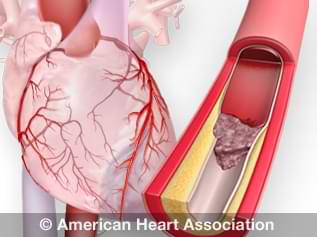

By admin
First publised on 2023-08-09 15:05:31
Heart disease remains one of the leading causes of death worldwide, with heart attacks being a significant contributor to this grim statistic. However, medical research has consistently shown that controlling blood pressure is a critical factor in reducing the risk of heart attacks by a staggering 50%. In this article, we delve into the relationship between blood pressure and heart attacks, exploring the reasons behind this link and the steps individuals can take to safeguard their heart health.
Understanding Blood Pressure and Heart Attacks
Blood pressure refers to the force with which blood flows through the arteries, pushing against their walls. It is represented by two values: systolic (the higher value) and diastolic (the lower value) pressures. Systolic pressure occurs when the heart contracts, pumping blood into the arteries, while diastolic pressure occurs when the heart relaxes and refills with blood.
A heart attack occurs when there is a sudden blockage of blood flow to a part of the heart muscle. Uncontrolled high blood pressure (hypertension) is a significant risk factor for heart attacks because it damages the arterial walls, making them more prone to plaque buildup and narrowing (atherosclerosis). As a result, blood flow to the heart muscle may be restricted, leading to a heart attack.
The 50% Reduction Link
Medical research, spanning several decades, has consistently demonstrated the powerful connection between controlling blood pressure and reducing the risk of heart attacks. Several landmark studies, such as the Framingham Heart Study and the Systolic Hypertension in the Elderly Program (SHEP), have shown that effectively managing blood pressure can significantly decrease the likelihood of suffering a heart attack.
By reducing high blood pressure, individuals can prevent or slow down the progression of atherosclerosis and minimize the strain on the heart. As a result, the risk of a heart attack is considerably reduced. Moreover, blood pressure control also contributes to a lower risk of other cardiovascular conditions, such as stroke and heart failure.
Methods to Control Blood Pressure
Lifestyle Modifications:
A heart-healthy diet: Emphasize a diet rich in fruits, vegetables, whole grains, lean proteins, and low-fat dairy. Reduce sodium intake and limit the consumption of processed and fried foods.
Regular exercise: Engage in at least 150 minutes of moderate-intensity aerobic activity or 75 minutes of vigorous-intensity aerobic activity per week, along with muscle-strengthening activities on two or more days a week.
Maintain a healthy weight: Losing excess weight can help lower blood pressure and reduce strain on the heart.
Limit alcohol and quit smoking: Excessive alcohol consumption and smoking can raise blood pressure and increase the risk of heart attacks.
Medication:
In some cases, lifestyle changes alone may not be sufficient to control blood pressure. Doctors may prescribe antihypertensive medications to help manage blood pressure effectively. It is essential for individuals with hypertension to follow their healthcare provider's recommendations and adhere to the prescribed treatment plan.
Regular Health Check-ups:
Regular monitoring of blood pressure is vital to identify any fluctuations or concerns promptly. Routine check-ups with a healthcare professional can help catch any potential issues and allow for timely intervention.
Controlling blood pressure is an integral aspect of heart health and can significantly reduce the risk of heart attacks by up to 50%. By adopting a heart-healthy lifestyle, including a balanced diet, regular exercise, maintaining a healthy weight, and abstaining from smoking and excessive alcohol consumption, individuals can take proactive steps in safeguarding their cardiovascular well-being. Additionally, working closely with healthcare providers and adhering to prescribed treatments, when necessary, can further optimize blood pressure control and contribute to a healthier heart and a longer, more fulfilling life.
Lead Picture courtesy: Amercian Heart Association











